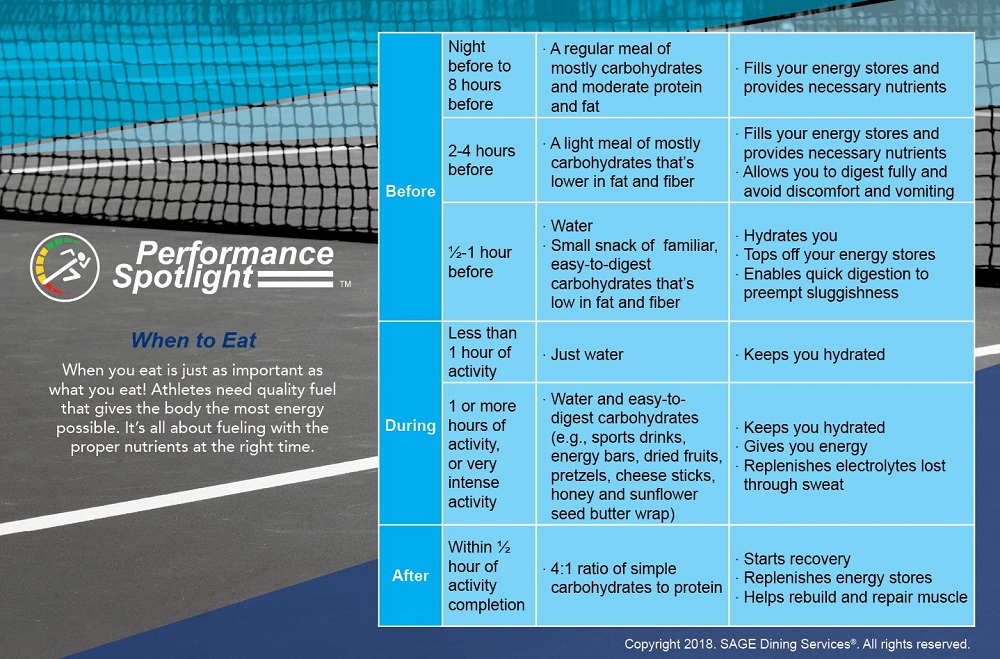Think fast! You’ve been asked to bring a snack to the soccer tournament for your child’s team. What do you bring? What you choose could impact their performance.
Athletes have different nutritional needs than their less active peers. Experts agree that adequate, well-timed nutrition enables and enhances intensive athletic performance. It maximizes gains in speed, strength, and agility; shortens the recovery period; provides nutrients that increase health; and reduces the risk of injury and illness.
Pay attention to the info below—not only will your student athlete benefit, but you will, too! Whether you’re hitting a CrossFit® session or training for a marathon, use this information to fuel yourself properly.
What to Eat
Grains and starches give you carbohydrates, which break down quickly into your body’s preferred fuel. Consuming carbohydrates before and during exercise provides energy, prevents low blood sugar, and contributes to healthy central nervous system function. Increased carbohydrate availability improves performance, whereas low carbohydrate availability reduces the duration and quality of performance, and contributes to fatigue. Completely depleting your carbohydrate-based energy stores causes your body to break down muscle protein for energy—delaying your recovery and hurting your future performance.
Proteins build and repair muscle, regulate metabolism, and support immune health. Consumption of high-quality protein (e.g., eggs, lean meat, milk, tofu) immediately following and up to a day after exercise is beneficial. It helps the body synthesize proteins and rebuild and repair muscle; it also shortens the recovery period. These results are enhanced when the protein is consumed with a carbohydrate.
Fat is an important source of energy, vitamins, and essential fatty acids (ones the human body can’t synthesize) that contribute to temperature regulation, immune health, and metabolism. Reduced fat intake is detrimental to these functions, but there’s no evidence that consumption of additional fats benefits athletic performance.
Fruits and vegetables support your whole body with micronutrients—the vitamins, minerals, and phytochemicals that promote general health, contribute to metabolism, and serve as antioxidants.








